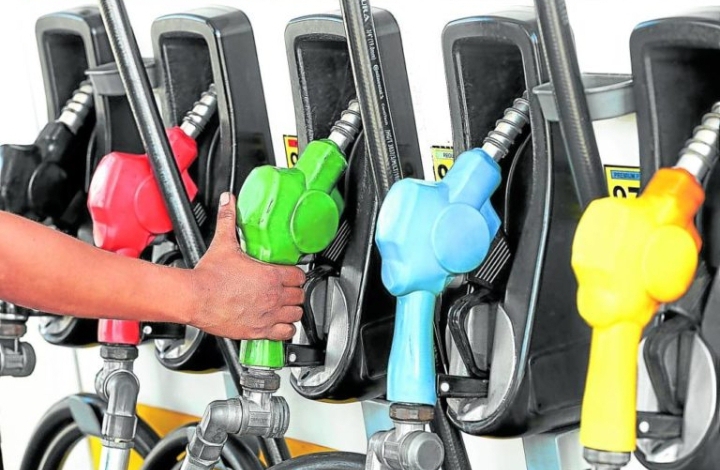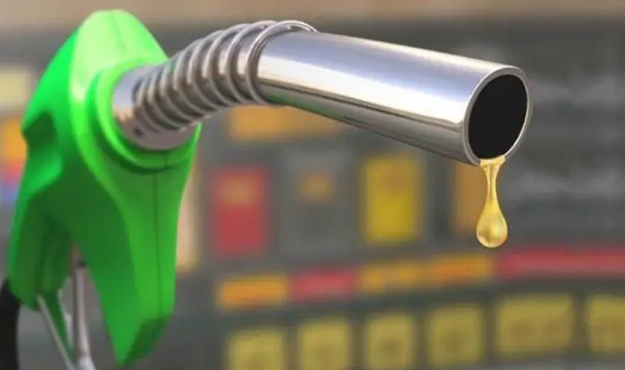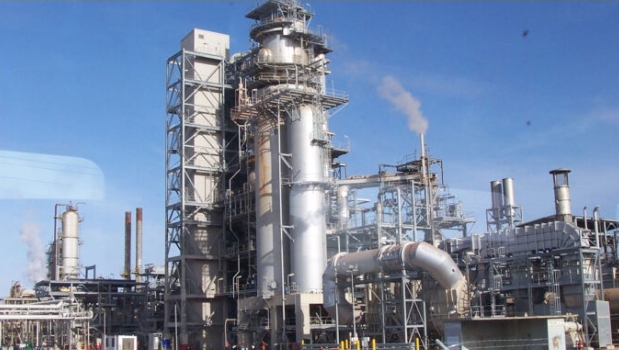Nigeria is rich in natural resources, particularly oil, which accounted for a large portion of government revenue. However, despite its richness in oil resources, the inadequacies in the petroleum industry have caused the country to depend continually on imported petroleum products, which has resulted in a costly subsidy regime. Consequently, removal of the petroleum subsidy has become a necessary step toward building a prosperous future for the country.
What is the Petroleum Subsidy?
It is the financial support provided by the government to reduce the cost of petroleum products as a way of making them more affordable to the masses. The government reimburses petroleum marketers for the difference between the cost of importing petroleum products and the regulated retail price at which they are sold to consumers. In Nigeria, this practice has been in place for several decades and the subsidy is applied to both imported and locally refined petroleum products with the aim of keeping the cost of transportation and goods low.

The issue of petroleum subsidy removal has been a contentious one in Nigeria for many years. Proponents of the subsidy argued that it helps to make fuel affordable for the poor, and is necessary to keep the cost of transportation and goods low. They also point to the fact that subsidy has helped to stabilize the prices of petroleum products in the country. While, opponents of subsidy argue that it is a drain on the country’s economy and that the benefits are not worth the cost. They argued that subsidy has led to corruption, as some unscrupulous individuals have taken advantage of it to enrich themselves. They also argue that subsidy has encouraged the importation of petroleum products, rather than the development of the country’s refining capacity.
Read Also: 2023 Population Census: A Necessity for Addressing Nigeria’s Problems
Basically, petroleum subsidy removal means that the government will no longer subsidize the cost of petroleum products for citizens, which will lead to an increase in the price of these products. Petrol and diesel are critical inputs in the transportation sector. When the cost of these products increases, the cost of transportation also increases, leading to an increase in the cost of goods and services. This increase in the price of petroleum products will have negative implications for the purchasing power of citizens and affect the welfare of citizens.

Moreso, many Nigerians rely on petroleum products for livelihoods, such as commercial drivers, artisans, and small shop owners. If petroleum subsidy is removed, the cost of doing business will increase and the cost of transportation and other inputs will rise, leading to a reduction in profit margins which will make doing business in the country to be less attractive for Small Scale investors. This can have negative implications for the country’s economic growth and development.
Read Also: Constitutional Democracy and the Unconstitutionality of Interim Government
Furthermore, petrol and diesel are critical inputs in many households, with many households relying on generators for electricity due to the unreliability of the power grid. When the cost of these products increases, the cost of living also increases, leading to a reduction in the standard of living of citizens. Thus, it is crucial for the government to carefully consider the implications of removing petroleum subsidies and take steps to moderate any negative effects on the welfare of citizens.

Nonetheless, removing the petroleum subsidy in Nigeria will lead to long-term gains for the country. Nigerian government heavily subsidizes petroleum products to make them affordable for citizens, and as such, it pays petroleum marketers on every liter of petroleum product sold. However, many marketers have been found to inflate the number of petroleum products they deliver to the market, leading to false claims of subsidy payments. The subsidy system is prone to abuse and fraud, which has led to a loss of billions of dollars in revenue which could have been utilized for essential public goods and services to citizens. Moreso, petroleum marketers are reducing the quality of petroleum products sold in the market, which has negative implications for the health and well-being of citizens.
Therefore, removing petroleum subsidies will lead to significant savings for the government; and the savings can be redirected toward critical sectors of the economy. It can be channeled towards improving social amenities and infrastructure for the betterment of citizen’s life. If government ensures that these savings are spent with a focus on transparency, accountability, and sustainability, it will have positive implications for the development of the country and the well-being of its citizens.

The savings from removal of subsidies can also be used to improve education in Nigeria. Government can invest such savings in building new schools, improving existing facilities, and providing teachers with better salaries and training. This will lead to improved access to quality education for citizens, and have positive implications for the development of the country. Secondly, such savings can be used to improve healthcare in Nigeria. Government can invest savings from the removal of subsidies in building new hospitals, improving existing facilities, and providing healthcare workers with better salaries and training. This will lead to improved access to quality healthcare for citizens, reduce brain drain and have positive implications for the health and well-being of the population.
Read Also: Praying For A Better Nigeria – Turn Your Prayer Into Action!
Thirdly, the savings can be used to improve infrastructure in Nigeria such as building new roads, bridges, public transportation systems, and providing access to basic amenities such as water and electricity, which will improve the standard of living for citizens, improve connectivity and facilitate economic growth. Furthermore, the savings can be used to provide social welfare programs for vulnerable citizens, such as the elderly, children, and persons with disabilities. Government can invest in programs such as social security and food assistance programs. This will help reduce poverty and inequality in the country, and ensure that all citizens have access to necessities.

Another long-term gain of petroleum subsidy removal is that it will lead to an increase in the cost of petroleum products, which will make alternative energy sources more attractive. This can lead to increased investment in renewable energy sources, such as solar, wind, and hydropower, which will help reduce the country’s reliance on fossil fuels and contribute to the reduction of greenhouse gas emissions. While there may be short-term pain associated with removing petroleum subsidies, the long-term gains will contribute to the sustainable development of the country and improve the welfare of its citizens.
Read Also: POLITICS OF REDESIGNING NIGERIA CURRENCY
Many have also argued that savings from the removal of subsidies can be channeled toward building new refineries in the country. Building new refineries in Nigeria will have several benefits for the economy and the welfare of citizens. Firstly, building new refineries will help reduce the country’s dependence on imported petroleum products. Nigeria is the largest oil producer in Africa but relies heavily on imported refined petroleum products due to the inadequacy and corruption in its domestic refining industry. Building new refineries will help increase the country’s domestic refining capacity, reduce its dependence on imported products, and boost economic growth.
Additionally, construction of new refineries will lead to increased production and exports of petroleum products, which will generate revenue for the government and create a multiplier effect on the economy. However, building new refineries requires a significant amount of capital and technical expertise. The savings from the removal of petroleum subsidies may not be sufficient to cover the cost of building new refineries. Government will need to address the issues of corruption and inefficiency in the petroleum industry to attract private investors into that sector.

In recent years, Nigerian government has been grappling with the issue of petroleum subsidy, as it seeks to balance the need to provide affordable fuel to its citizens with the need to manage its resources effectively. Hence, Nigerian government had resulted in borrowing to pay petroleum marketers. Borrowing loans to pay for subsidies in Nigeria has significant economic implications for the country, as it increases the country’s debt burden. Nigeria already has a high debt-to-GDP ratio, which has been a cause for concern. Adding more debt to finance subsidies will worsen the debt burden and increase the risk of default on loans, which can lead to a financial crisis.
Secondly, borrowing loans to finance subsidies will lead to a reduction in investment in other areas of the economy. When government borrows money to finance subsidies, it may have to cut spending in other areas to ensure that it can service its debt obligations. This will lead to a reduction in the government’s ability to provide essential public goods and services. With a high debt burden, the government may have limited funds to allocate to important areas, such as health, education, and infrastructure. This may lead to a decline in the quality of public goods and services, which can have negative implications for the welfare of citizens.
Read Also: THE ONLY WAY TO ENSURE A NEW NIGERIA
Beyond the above-mentioned, borrowing loans to pay for subsidies in Nigeria will also lead to currency devaluation. When government borrows large sums of money to finance subsidies, it increases the demand for foreign currency, which can lead to devaluation of the local currency. This will make imports more expensive, leading to reduction in the purchasing power of citizens and inflation. Moreover, high levels of debt and an unstable economy can make foreign investors wary of investing in the country. This will lead to a reduction in foreign direct investment (FDI), which can have negative implications for the country’s economic growth and development.
CONCLUSION
Conclusively. The removal of petroleum subsidies in Nigeria has been a topic of discussion for several years. While the short-term sacrifices may be weighty, the long-term gains can immensely have far-reaching implications, not only for the present Nigeria’s economy but also for the future of the country. However, the success of this transition will depend on the government’s ability to address the underlying issues of corruption, inefficiency, lack of transparency, and to manage the savings from the removal of subsidies effectively. Without doubt, removal of petroleum subsidies in Nigeria is a necessary step toward building a sustainable and prosperous future for the country. With a concerted effort from all stakeholders, including the government, private sector, and citizens, Nigeria can take this necessary step to realize its potential as a leading economy in Africa and beyond. The future of Nigeria without petroleum subsidy is full of opportunities and potential for growth, and it is up to the country’s leaders and citizens to work together to seize them.
Idowu E. Faleye, a certified Data Analyst, Political Activist, and writer, is a graduate of Politics & Public Administration. He’s the Founder/Chief Data Officer at EphraimHill Data Blog –a Data Reporting Site that is niche in Politics & Society. He can be reached at +2348132100608. or ephraimhill01@gmail.com












































![The Trend of Insecurity in Nigeria. [Part 2]](https://ephraimhilldc.com/wp-content/uploads/2024/09/Computer-Monitoring-of-Remote-areas.png)


































